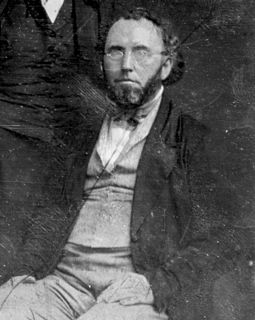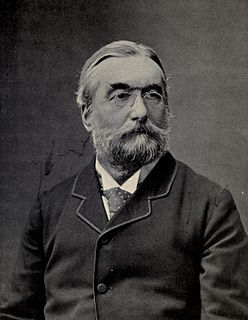A Quote by George Ripley
If any imagine from the literary tone of the preceding remarks that we are indifferent to the radical movement for the benefit of the masses which is the crowning glory of the nineteenth century, they will soon discover their egregious mistake.
Related Quotes
Given that the nineteenth century was the century of Socialism, of Liberalism, and of Democracy, it does not necessarily follow that the twentieth century must also be a century of Socialism, Liberalism and Democracy: political doctrines pass, but humanity remains, and it may rather be expected that this will be a century of authority ... a century of Fascism. For if the nineteenth century was a century of individualism it may be expected that this will be the century of collectivism and hence the century of the State.
In the middle of the next century, when the literary establishment will reflect the multicultural makeup of this country and not be dominated by assimiliationists with similar tastes, from similar backgrounds, and of similar pretensions, Langston Hughes will be to the twentieth century what Walt Whitman was to the nineteenth.
Our Twentieth Century has proved to be more cruel than preceding centuries, and the first fifty years have not erased all its horrors. Our world is rent asunder by those same old cave-age emotions of greed, envy, lack of control, mutual hostility which have picked up in passing respectable pseudonyms like class struggle, radical conflict, struggle of the masses, trade-union disputes.
In less than a century we experienced great movement. The youth movement! The labor movement! The civil rights movement! The peace movement! The solidarity movement! The women's movement! The disability movement! The disarmament movement! The gay rights movement! The environmental movement! Movement! Transformation! Is there any reason to believe we are done?
In the nineteenth century, which was a dark and inflationary age in typography, man compositors were encouraged to stuff extra space between sentences. Generations of twentieth-century typists were then taught to do the same, by hitting the spacebar twice after every period. Your typing as well as your typesetting will benefit from unlearning this quaint Victorian habit.
The major break in the understanding of manliness is not between, say, the nineteenth century and any particular preceding era but between my generation of Baby Boomers and the entire proceeding complex of teachings. In some ways, TR and Churchill have more in common with Homer and Shakespeare than they do with us.
THE NINETEENTH CENTURY SPREAD OF CHRISTIANITY WAS DUE PRIMARILY TO A NEW BURST OF RELIGIOUS LIFE EMANATING FROM THE CHRISTIAN IMPULSE. . . . NEVER IN ANY CORRESPONDING LENGTH OF TIME HAD THE CHRISTIAN IMPULSE GIVEN RISE TO SO MANY NEW MOVEMENTS. NEVER HAD IT HAD QUITE SO GREAT AN EFFECT UPON WESTERN EUROPEAN PEOPLES. IT WAS FROM THIS ABOUNDING VIGOR THAT THERE ISSUED THE MISSIONARY ENTERPRISE WHICH DURING THE NINETEENTH CENTURY SO AUGMENTED THE NUMERICAL STRENGTH AND THE INFLUENCE OF CHRISTIANITY.
It is one of the saddest spectacles of our time to see a great democratic movement support a policy which must lead to the destruction of democracy and which meanwhile can benefit only a minority of the masses who support it. Yet it is this support from the Left of the tendencies toward monopoly which make them so irresistible and the prospects of the future so dark.
This movement among the Jews is not new... This world-wide conspiracy for the overthrow of civilisation and for the reconstitution of society on the basis of arrested development, of envious malevolence, and impossible equality, has been steadily growing... It has been the mainspring of every subversive movement during the Nineteenth Century.
I began to feel that my greatest sense of success would raise the level of masses of people, rather than the individual being accepted by the Establishment. So, this kind of personal thinking, combined with, say, even the little bit more radical thinking - because at one time the pacifist movement was a very radical concept.






































